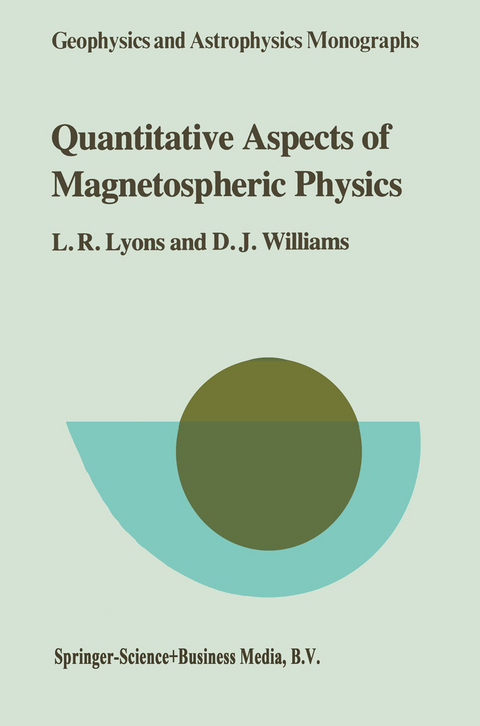
Quantitative Aspects of Magnetospheric Physics
Seiten
2010
|
Softcover reprint of hardcover 1st ed. 1984
Springer (Verlag)
978-90-481-8391-3 (ISBN)
Springer (Verlag)
978-90-481-8391-3 (ISBN)
The discovery of the earth's radiation belts in 1957 marked the beginning of what is now known as magnetospheric physics. We have avoided controversial and relatively new research topics and have tried to use as examples physical processes generally accepted as important within the earth's magnetospheric system.
The discovery of the earth's radiation belts in 1957 marked the beginning of what is now known as magnetospheric physics. The field has evolved normally from an early discovery phase through a period of exploration and into an era of quantitative studies of the dynamics of magnetized plasmas as they occur in nature. Such environments are common throughout the universe and have been studied in varying detail at the sun, the planets, pulsars, and certain radio galaxies. The purpose of this book is to describe basic quantitative aspects of magnetospheric physics. We use selected examples from the earth's magnetosphere to show how theory and data together form a quantitative framework for magnetospheric research. We have tried to organize the material along the philosophy of starting simply and adding com plexity only as necessary. We have avoided controversial and relatively new research topics and have tried to use as examples physical processes generally accepted as important within the earth's magnetospheric system. However, even in some of our examples, the question of whether the physical process applied to a particular problem is the dominant process, has yet to be answered.
The discovery of the earth's radiation belts in 1957 marked the beginning of what is now known as magnetospheric physics. The field has evolved normally from an early discovery phase through a period of exploration and into an era of quantitative studies of the dynamics of magnetized plasmas as they occur in nature. Such environments are common throughout the universe and have been studied in varying detail at the sun, the planets, pulsars, and certain radio galaxies. The purpose of this book is to describe basic quantitative aspects of magnetospheric physics. We use selected examples from the earth's magnetosphere to show how theory and data together form a quantitative framework for magnetospheric research. We have tried to organize the material along the philosophy of starting simply and adding com plexity only as necessary. We have avoided controversial and relatively new research topics and have tried to use as examples physical processes generally accepted as important within the earth's magnetospheric system. However, even in some of our examples, the question of whether the physical process applied to a particular problem is the dominant process, has yet to be answered.
1: Introduction.- 2: Charged-Particle Motion in Magnetic and Electric Fields.- 3: Trapping Region and Currents Due to Trapped Particles.- 4: Electric Fields.- 5: Wave-Particle Interactions.
| Reihe/Serie | Geophysics and Astrophysics Monographs ; 23 |
|---|---|
| Zusatzinfo | XV, 231 p. |
| Verlagsort | Dordrecht |
| Sprache | englisch |
| Maße | 155 x 235 mm |
| Themenwelt | Naturwissenschaften ► Geowissenschaften ► Meteorologie / Klimatologie |
| Naturwissenschaften ► Physik / Astronomie ► Angewandte Physik | |
| Naturwissenschaften ► Physik / Astronomie ► Astronomie / Astrophysik | |
| ISBN-10 | 90-481-8391-X / 904818391X |
| ISBN-13 | 978-90-481-8391-3 / 9789048183913 |
| Zustand | Neuware |
| Informationen gemäß Produktsicherheitsverordnung (GPSR) | |
| Haben Sie eine Frage zum Produkt? |
Mehr entdecken
aus dem Bereich
aus dem Bereich
Grundlagen – Maßnahmen – Planungen
Buch | Hardcover (2021)
Springer Fachmedien Wiesbaden GmbH (Verlag)
CHF 209,95
Buch | Softcover (2022)
Springer Vieweg (Verlag)
CHF 53,15
A User Guide for Offshore Renewables and Oil & Gas
Buch | Hardcover (2024)
Whittles Publishing (Verlag)
CHF 78,55


